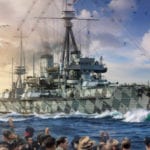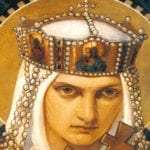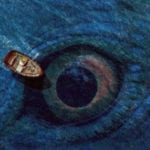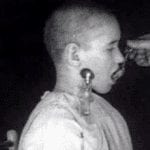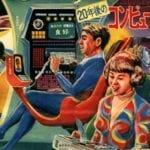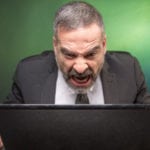 Politics
Politics  Politics
Politics  Weird Stuff
Weird Stuff 10 Eggs-traordinarily Odd Eggs
 History
History 10 Desperate Last Stands That Ended in Victory
 Animals
Animals Ten Times It Rained Animals (Yes, Animals)
 Mysteries
Mysteries 10 Devastating Missing Child Cases That Remain Unsolved
 Creepy
Creepy 10 Scary Tales from the Middle Ages That’ll Keep You up at Night
 Humans
Humans 10 One-of-a-kind People the World Said Goodbye to in July 2024
 Movies and TV
Movies and TV 10 Holiday Movies Released at Odd Times of the Year
 Politics
Politics 10 Countries Where Religion and Politics Are Inseparable
 Weird Stuff
Weird Stuff 10 Freaky Times When Famous Body Parts Were Stolen
 Politics
Politics The 10 Most Bizarre Presidential Elections in Human History
 Weird Stuff
Weird Stuff 10 Eggs-traordinarily Odd Eggs
 History
History 10 Desperate Last Stands That Ended in Victory
Who's Behind Listverse?

Jamie Frater
Head Editor
Jamie founded Listverse due to an insatiable desire to share fascinating, obscure, and bizarre facts. He has been a guest speaker on numerous national radio and television stations and is a five time published author.
More About Us Animals
Animals Ten Times It Rained Animals (Yes, Animals)
 Mysteries
Mysteries 10 Devastating Missing Child Cases That Remain Unsolved
 Creepy
Creepy 10 Scary Tales from the Middle Ages That’ll Keep You up at Night
 Humans
Humans 10 One-of-a-kind People the World Said Goodbye to in July 2024
 Movies and TV
Movies and TV 10 Holiday Movies Released at Odd Times of the Year
 Politics
Politics 10 Countries Where Religion and Politics Are Inseparable
 Weird Stuff
Weird Stuff 10 Freaky Times When Famous Body Parts Were Stolen
Top 10 Historic Radio Broadcasts
Radio and the Phonograph have enabled us, for the first time in history, to broadcast some of the most important historical moments to the world. Here are ten of the most famous or historically important broadcasts in history. The items in the list are not numbered for importance as it is too subjective to rate recordings of this type.
10 The Hindenburg Disaster
The Hindenburg was a German Zeppelin built in 1935 in order to carry passengers between Europe and the United States. Due to a military embargo by the US, the Germans, who normally used helium in their Zeppelins, chose to use flammable hydrogen. In 1937, it met with disaster when landing at Lakehurst Naval Air Station. It is particularly interesting to note the tone of voice being used by the reporter in this recording – you can truly appreciate the horror he felt witnessing the event – something which has virtually vanished from modern reporting. This is particularly evident when he cries the now famous phrase: “Oh the humanity!”
Watch the movie inspired by one of the greatest radio broadcasts of all time! Buy War of the Worlds on Blu-ray at Amazon.com!
9War of the Worlds
Directed by Orson Welles, this broadcast was an adaptation of H. G. Wells’ classic novel The War of the Worlds (1898), and was performed as a Halloween special on October 30, 1938. The live, 60 minute broadcast, presented mostly as a series of news bulletins, frightened many listeners into believing that an actual Martian invasion was in progress. There was public outcry against the episode, but it launched Welles to great fame.
8 Einstein – e=mc2
Albert Einstein was a great physicist born in Germany in 1879. In this recording, Albert Einstein discusses his relativity theory, probably his most famous work. Einstein started out as a child with speech difficulties and was considered by many to be a dullard. Little did they know the impact he would have on the future of science.
7Winston Churchill – We shall fight on the beaches
As well as being prime-minister of Great Britain, Winston Churchill was a master orator and author of many books (including a four volume “History of the English Speaking Peoples”). As an orator, he is most famous for his wartime speeches (during the second World War). Perhaps the most well known of these is the speech recorded here and broadcast on June 4, 1940. You can also read the full text of the speech here.
6 Martin Luther King – I have a dream
The “I have a dream” speech is probably King’s most famous speech, given in front of the Lincoln Memorial during the 1963 March on Washington for Jobs and Freedom. In this speech he speaks of his dream for blacks and whites to live together in harmony as equals. This speech marked the defining moment for the American Civil Rights movement.
5 Adolf Hitler – Declaration of war
Hitler came to power in Germany during the period of confusion which followed World War I (the Weimar Republic in which the Kaiser was ultimately replaced by a government) and became very popular through his use of propaganda appealing to the lower and middle classes. He sparked off World War II when he invaded Poland. This recording is a broadcast of Adolf Hitler declaring war on Poland (“we shall meet bomb with bomb”) – the American reporter translates as he goes. Most interestingly, the reporter is interrupted twice to announce that the governments of France and Great Britain were summoning emergency councils.
4Gandhi – Soldier of peace
Mohandas Gandhi (who was referred to by the people as Mahatma) was a major political and spiritual leader of India and the Indian Independence Movement. He founded the concept of Satyagraha (causing change through mass civil disobedience). This is Gandhi’s famous Soldier of Peace speech. Mohandas was not without his share of controversy – particularly in the comment he made when asked about the situation in Palestine: “Palestine belongs to the Arabs in the same sense that England belongs to the English or France to the French. It is wrong and inhuman to impose the Jews on the Arabs.”
3John F. Kennedy – Cuban Missile Crisis
John F. Kennedy was the US president from 1961 – 1963, when he was assassinated in Dallas, Texas. During his time as president, the US installed nuclear facilities in Turkey which were within range of parts of Russia. In retaliation, the Soviet government began installing nuclear facilities in Cuba which put the USA in direct threat. President Kennedy warned that if they were not removed, they would possibly invade Cuba, and that it could be seen as a direct act of aggression that might lead to a nuclear retaliation on the part of the US. In this speech, JFK describes the situation and mentions the threat of nuclear war. The crisis was averted when both sides agreed to dismantle their installations.
Who really killed Kennedy? Solve the riddle yourself with The Kennedy Conspiracy: 12 Startling Revelations About the JFK Assassination at Amazon.com!
2Lord Hawhaw – off the air
William Joyce (or Lord Hawhaw has he more well known) was a fascist politician who worked for the Nazi’s during the war as a propagandist. His distinctly “posh” English accent is the cause of him receiving his mocking nickname. Joyce broadcast propaganda from radio stations in Berlin, Hamburg, and Luxembourg. Whilst it was not illegal to listen to his broadcasts in England, it was frowned upon. Nevertheless his recordings were very popular with the public as a source of amusement. He became a hated and ridiculed figure. He escaped after the war but an English soldier overheard him talking at a cafe and recognised his voice. He was arrested and executed for treason. This is the last broadcast made from Hawhaw’s radio station – it is made by a British Soldier and it announces that Lord Hawhaw has gone and will not be back.
1 Sylvia Plath – Daddy
Born in 1932, Sylvia Plath is one of the greatest female American writers of all time. In this recording she reads her most famous poem “Daddy”. Eerily, within a month of reading this, she had committed suicide. Her life was wracked with depression and attempts to kill herself (she even mentions this in Daddy: “At twenty I tried to die […] But they pulled me out of the sack, And they stuck me together with glue”). Plath had been married to Ted Hughes (whose second wife also killed herself and their children) who was, at one time, the UK Poet Laureate. You can read the full text of Daddy here.
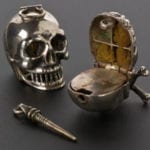
![Top 10 Haunting Images Of Historic Tragedies [DISTURBING] Top 10 Haunting Images Of Historic Tragedies [DISTURBING]](https://listverse.com/wp-content/uploads/2020/05/33758v-150x150.jpg)
